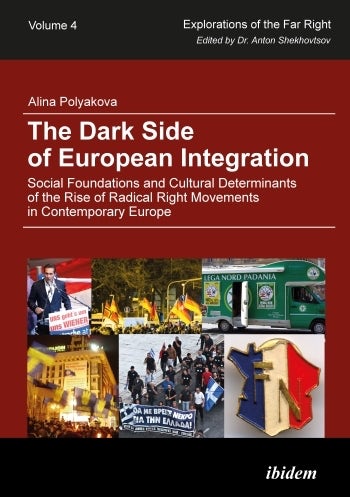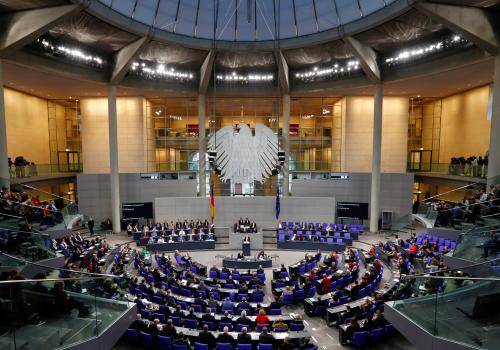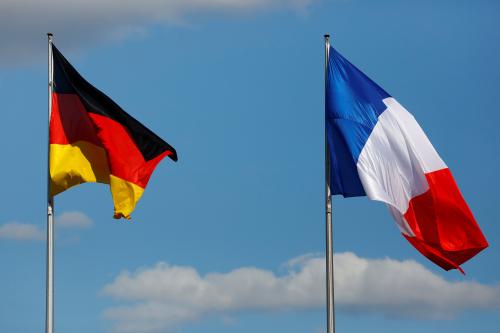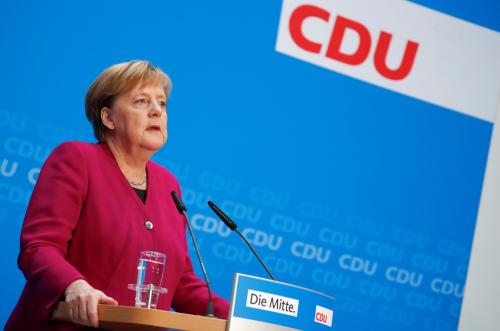The murder of German politician Walter Luebcke by a far-right extremist tests Germany’s democracy and the country’s major center-right party, Angela Merkel’s Christian Democrats, argues Constanze Stelzenmüller. This article originally appeared in the Financial Times.
A single shot to the head, fired from close range around midnight on June 1, ended the life of Walter Lübcke, a popular politician from the picturesque German town of Wolfhagen. The first murder of a politician by a rightwing extremist in Germany’s postwar history could be a political earthquake in the making.
Lübcke was a member of Chancellor Angela Merkel’s centre-right Christian Democratic party (CDU), and a senior regional government official. The man arrested for his murder has confessed. He has previous convictions for hate crime, and told the police he was motivated by Lübcke’s emphatic defence of Ms. Merkel’s refugee policy.
A shocked country is still struggling to come to terms with the implications of this grisly crime for the health of its democracy. The CDU’s response to the incident is fast becoming a test of its principles, cohesion and stamina in fending off the hard right.
Rightwing social media sites have been celebrating the killing. And previous victims of brutal rightwing attacks—such as the mayor of Cologne, Henriette Reker, who was nearly killed in a 2015 knifing—have received new death threats and warnings of an impending cleansing of Jews and Muslims.
The gravity of the situation is highlighted by the decision of Germany’s chief prosecutor to assert jurisdiction over the crime. His remit covers political crimes, like espionage or terrorism, but he can also decide to take up individual murder cases if they could “endanger the domestic security of the Federal Republic of Germany.”
Senior German politicians, including Ms. Merkel, President Frank-Walter Steinmeier and interior minister Horst Seehofer, have condemned the attack. But the unpleasant truth is that their decade in power has seen a surge of radical right-wing activity on the streets, in social media, and in legislatures. Germany’s domestic intelligence service counted 12,700 “violent extremists” in the country. Target lists of public figures circulate online and an increasing number of politicians are under police protection.
Worse still, some domestic security agencies appear unwilling or unable to tackle the threat. Between 2000 and 2007, the National Socialist Underground murdered 10 people, most of them immigrants.
The killings were at first wrongly attributed to “migrant clans.” After it became clear that the killers were right-wing extremists, documents were lost, evidence destroyed. A parliamentary committee of inquiry found major mistakes were made by the authorities. More recently, police in some cities have stood idly by or retreated as extremist groups wearing forbidden insignia marched and rioted.
Another nasty truth is that Ms. Merkel’s CDU is deeply torn between a liberal group, a centrist camp, and the hard conservatives of the Werte-Union (Union of Values). What divides them most is Alternative for Germany, a xenophobic far-right party created in 2013 which entered the Bundestag in 2017 with 12.6 percent of the vote—making it the leader of the opposition.
Among its legislative staff are numerous former members of the armed forces and police. Key AfD figures have marched in parades with extremists or fantasized publicly about mob violence. The AfD leadership professes disgust for Lübcke’s murder, but adds that it condemns “all terrorism.”
The AfD has much in common with the extremists. Their target is not Islam or certain immigrants, but liberal modernity and Germany’s pluralist constitutional order, which the party calls “an illegitimate state of affairs.” Both direct particular hatred against institutions that act as a bridge between government and citizens in a representative democracy: publicly funded media, unions, and political parties. Some members of the CDU now accuse the AfD of incitement; others have remained notably silent.
Ms. Merkel’s coalition government, nearly brought to its knees by a historic trouncing in the May European Parliament elections, faces elections in the autumn in the eastern states of Saxony, Brandenburg and Thuringia. In all three, the AfD is polling in second or even first place. The CDU leadership under Annegret Kramp-Karrenbauer has categorically ruled out coalitions with the AfD, yet not a day goes by without a public squabble within the party on the subject.
To recognize the full meaning of this cold-blooded murder is to understand that something far larger than the future of the party or its power to govern is at stake: the future of German democracy, the best the country has ever had. That is the urgent business of every German citizen. But for the CDU, it is a test of its honor, and perhaps of its survival.










Commentary
German radical right threatens the survival of democracy
June 27, 2019